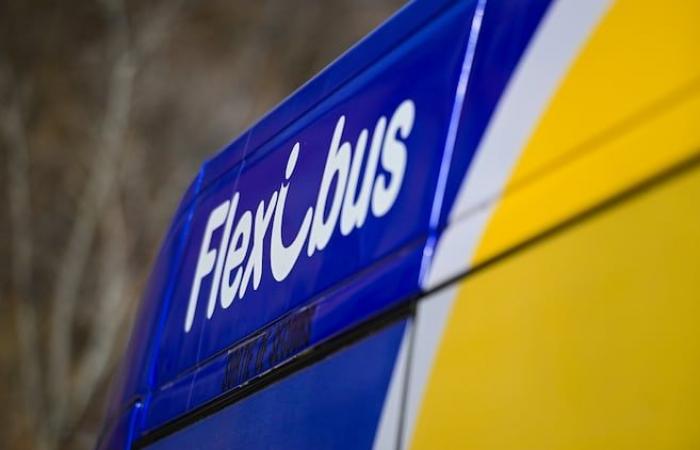Since its launch in March 2022, Flexibus has been operated by Taxi Coop. However, gradually, in a little over two years, the service will no longer rely on this external supplier, since the Réseau de transport de la Capitale (RTC) will entrust its operation to its drivers.
This change is the result of the new collective agreement signed in 2023, which provides for internal repatriation from 2027, with a complete withdrawal from the private sector no later than 2030. A “major gain”, the union then underlined, who campaigned in favor of an end to the use of subcontracting.
But will seating RTC drivers behind the wheel of small taxi-bus type vans provide financial benefits to the transport company?
In a response to a request for access to information made by the official opposition cabinet at Quebec City Hall and consulted by The Soleilthe RTC says nothing about it. “No document” exists regarding comparisons of Flexibus operating costs between a private supplier and a resumption of activities internally, we can read in the official document.
The transport company has in its hands “several hypothetical financial scenarios”, spokesperson Raphaëlle Savard said on Monday in a written statement sent to the Soleil.
“Elements concerning the operating mode of Flexibus must first be discussed with the unions before specifying the exact costs of operating the service by the RTC,” she explains. A working committee involving the unions must still be set up with a view to integrating the service “and, therefore, with the evolution of the discussions, we will eventually be able to talk about a precise total cost”.
“Improvisation” or “lack of transparency”
“There is nothing in what we are told which reassures us and which shows us that the RTC is not groping forward in this,” reacted in an interview on Monday the leader of the official opposition, Claude Villeneuve .
His team wanted to verify the “impact on the finances of the RTC” associated with the end of subcontracting of the Flexibus service, a few days before the submission of performance audits of transport companies ordered by the Legault government.
In its report released at the beginning of November, the firm Raymond Chabot Grant Thornton concluded that subcontracting services provided by transport companies, such as the operation of bus routes or maintenance, could lead to major savings of 72 million dollars annually.
Claude Villeneuve, leader of the official opposition (Yan Doublet/Archives Le Soleil)
“The private sector can be beneficial,” declared the Minister of Transport Geneviève Guilbault, in reaction to this recommendation, raising in passing “collective agreement clauses which prevent having the necessary flexibility” to use it.
“One of the important recommendations of the audit is to move towards outsourcing. However, in Quebec, we are going in the opposite direction,” underlines the leader of the official opposition.
“When we brought it up, the mayor said there was no question of touching that. Bruno Marchand maintains this orientation, without knowing what the financial impact is. We find that we are putting the RTC at risk,” worries Claude Villeneuve, recalling that in terms of financial performance, the Capital Transport Network ranks ninth among ten transport companies studied in the audits.
As in the registration tax issue, for which the RTC relied on the mayor’s office to reveal the financial analyzes developed – a request refused by the City of Quebec – the official opposition denounces a “lack of transparency”.
“Maybe the RTC improvises, maybe not, but in any case, it is not transparent,” says Mr. Villeneuve.
“Several wins”
Beyond the financial repercussions, the RTC argues that “several gains” will result from operating Flexibus internally.
“Improve the uniformity in the service offered”, “increase its operational flexibility”, “better control over the customer experience”, lists spokesperson Raphaëlle Savard, not to mention that “the operation of Flexibus responds to a request from drivers and we are proud to be able to attribute the success of this service to the RTC teams,” she adds.
As for the benefits of calling on the private sector, as submitted by Raymond Chabot Grant Thornton, the RTC expresses doubts.
“It is true to say that the report cites outsourcing as a solution to reduce operating costs, but the report does not demonstrate this. Each outsourced service differs depending on the use of the service and the collective agreements signed with the unions,” we argue.
Over five years (2022-2027), the investment in Flexibus is estimated at $21.5 million.






